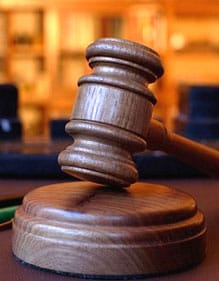|
Getting your Trinity Audio player ready...
|
Dear Corruption Watch: It seems the ace in every politician’s hand is the sub judice rule, which somehow makes difficult questions go away. What does sub judice mean, and why are these words so powerful?
Yours sincerely,
Latin illiterate
Dear Latin illiterate
“Sub judice” is a Latin expression meaning “under judgment”. The power in these words is entirely illusory.
The sub judice rule is an extension of the common law rule that the proper administration of justice may not be prejudiced or interfered with. Traditionally, it prescribed that publications or statements which prejudiced the administration of justice in pending proceedings were in contempt of court. The effect of the rule has been significantly curtailed by the Supreme Court of Appeal (SCA), however.
Politicians are understandably fond of the sub judice rule because it gives the appearance of legitimacy to their refusal to answer questions relating to pending legal proceedings. Recently, the rule was invoked to shield Danny Jordaan and Molefi Olifant from answering to parliament for the Fifa bribery allegations.
It was also used to get Cyril Ramaphosa off the hook when asked to explain the mysterious departure of Sudanese president Omar al-Bashir in breach of a court order.
But the rule, in its strict form, does not fit well in a legal system like ours. It makes more sense in jurisdictions that employ juries and where jurors may be influenced by the opinions they hear and read outside the courtroom. Judges, however, are more adept at excluding such influences from their decision-making.
 In a constitutional democracy like ours, competing rights must be weighed and balanced against each other. In the present example, it is the right to a fair trial (as protected by the sub judice rule) that must be balanced with the right to freedom of expression. The right to freedom of expression entails the press’ right to publish, and the public’s right to receive, information on important issues.
In a constitutional democracy like ours, competing rights must be weighed and balanced against each other. In the present example, it is the right to a fair trial (as protected by the sub judice rule) that must be balanced with the right to freedom of expression. The right to freedom of expression entails the press’ right to publish, and the public’s right to receive, information on important issues.
In the case of Midi Television (Pty) Ltd v Director of Public Prosecutions (Western Cape), the SCA realigned the contours of the sub judice rule to ensure that it did not excessively impinge on the right to freedom of expression. It said that a publication will only be unlawful “if the prejudice that the publication might cause to the administration of justice is demonstrable and substantial and there is a real risk that the prejudice will occur if publication takes place”.
In addition, a court would have to be satisfied that the disadvantage of limiting the free flow of information outweighed the advantage. The court said that in assessing this, the interests of the public who have access to the published information, as well as the interests of the publishers, must be taken into account.
This puts a fairly onerous burden on anyone wishing to invoke the sub judice rule. It is not the panacea that so many politicians seem to believe it is. In the case of al-Bashir, it is difficult to imagine how any prejudice to legal proceedings would arise out of Cyril Ramaphosa’s answering of questions on the matter. And even if it did, it would surely not outweigh the prejudice that would be done to the public’s right to information by refusing to answer such questions.
You are therefore entirely right to be sceptical of this rule and its use by those in positions of power. There is nothing absolute or inviolable about the words sub judice, and your right to know will usually trump this somewhat outdated and awkward rule, whatever the politicians may say.



